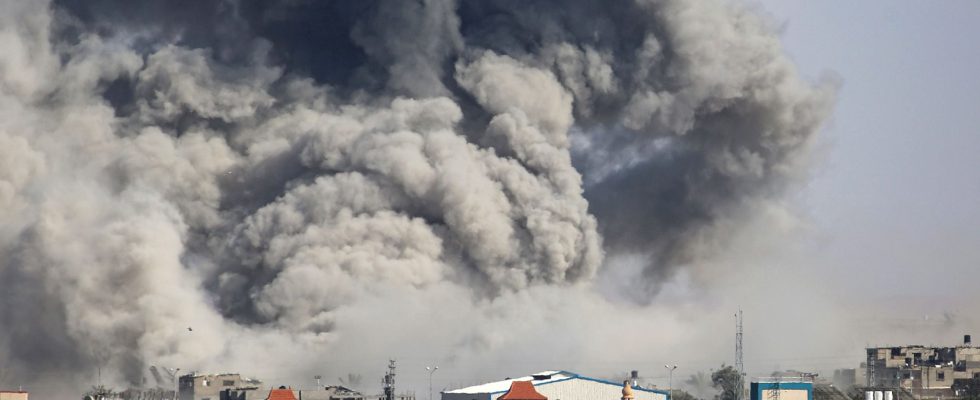The Israeli army announced on Tuesday, May 7, that it had taken control of the Palestinian part of the Rafah crossing point between the Gaza Strip and Egypt and that ground troops had begun a “targeted counterterrorism operation” in the east of the city. “At the moment, special forces are combing the crossing point” of Rafah, “we have operational control of the area”, affirmed the Israeli army, specifying that it was speaking “only on the Gazan side” of the sector. . For L’Express, General Jérôme Pellistrandi, editor-in-chief of the magazine National Defenseevokes the different dilemmas facing Israel which must compose between its desire to annihilate Hamas and the hope of seeing its hostages again.
L’Express: How do you interpret the bombings which hit Rafah during the night from Monday to Tuesday?
Jérôme Pellistrandi: On the ground, the situation is very complex. On the one hand, Israel is faced with endless discussions to obtain the release of the hostages and on the other, Hamas plays a lot on ambiguity. In fact, Benjamin Netanyahu’s government is faced with the desire to eradicate the Islamist movement, while having the absolute necessity of freeing the hostages.
This very complicated whole is reflected in Israel by the prospect of improving humanitarian aid intended for Palestinian civilians, under international pressure, notably from the United States, while the IDF takes control of the Rafah crossing point. By doing this, the Israeli army aims to block flows that can supply Hamas – militarily or humanitarian – and to prevent Hamas fighters from leaving the territory. Conversely, the Israeli army is embarking on humanitarian maneuvers aimed at letting refugees leave for safer areas, but without really relieving the human drama that has been playing out for several months.
Are we at the prelude to a ground offensive in Rafah, where there are 1.2 million displaced people?
It’s still difficult to say. The question is to know what modes of action will be adopted by the IDF? Will it be a ground offensive as has already been the case in the Gaza Strip? Or will the Israeli army take more targeted actions this time? With the accumulation of intelligence and information on Hamas since the start of the war, it is now possible to have more limited attacks in space. The whole difficulty in Rafah is the overlapping of Hamas forces and the civilian population in the same place, which creates a military impasse for the IDF.
One thing is certain: Israel could not accept the ceasefire conditions that were far too superior to the military reality on the ground. Strategically, the IDF wants to increase military pressure to force Hamas to change its position. The Islamist movement is weakened militarily. While it no longer controls the entire Gaza Strip, it has already lost 15,000 fighters. In total, there would be 3,000 left. Additional difficulty for Hamas: it now no longer has any supplies. We also see that there are dissensions between the political branch – in favor of a ceasefire – and the military branch, the most intransigent.
How do you see the conflict evolving in the coming days?
Each time, it feels like the next few days will be decisive, but maybe that really will be the case this time. The further we advance, the more difficult the days will be. For Israel, the question of hostages remains crucial. However, they are completely dispersed. What state of health are they in? Are they still alive? This is a very sensitive subject, as demonstrated by the protests that took place in Tel Aviv recently. The whole complexity for Israel will be finding the most effective operating methods. For the moment, Tel Aviv has not succeeded in freeing the hostages or completely breaking Hamas. Finally, Israel also knows that it is in an uncomfortable situation regarding the humanitarian aid to be provided to the Gazan populations.
